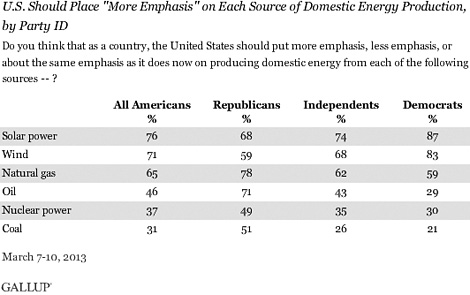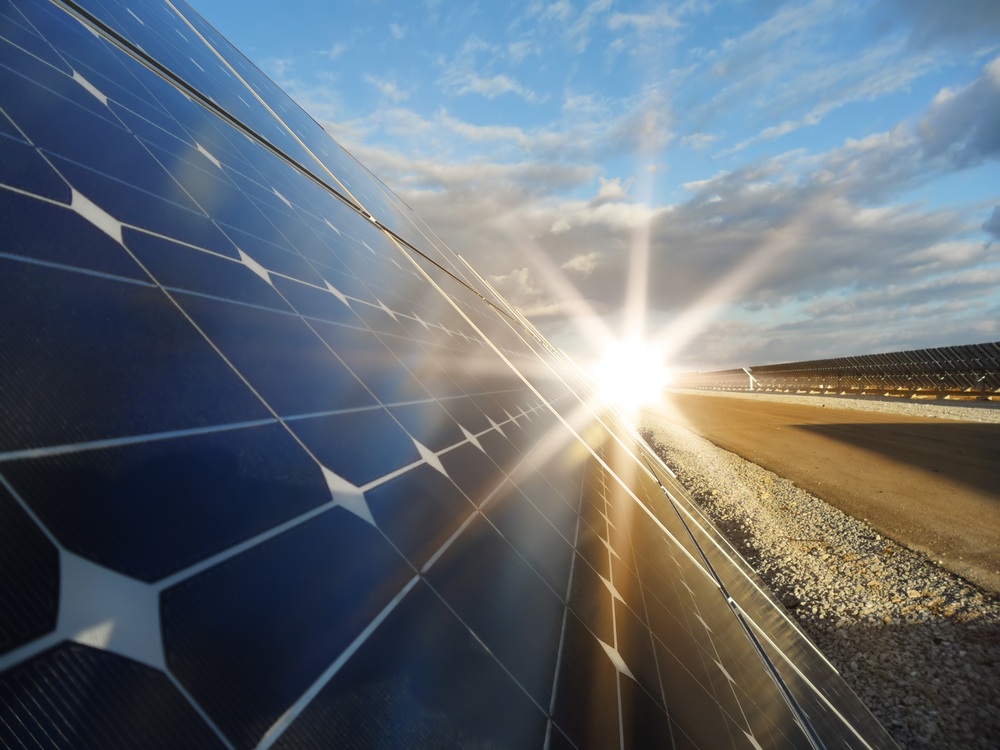
Shutterstock / Gencho PetkovSeeing the light.
This is how the typical American thinks in 2013, according to a couple of new polls: “More solar power, please. No more nuclear, thanks though. And let’s get ready for this crazy climate-change thing.”
A Gallup poll of 1,022 people revealed that a whopping 76 percent of Americans think the U.S. should put more emphasis on developing solar power. Even Republicans are into it, with 68 percent of them calling for more solar. Wind is also popular. So too is natural gas, supported by about two-thirds of Americans. Support for oil and coal is split along party lines, with most Republicans favoring efforts to dig up and burn more of the dirty fuels and most Democrats opposing them. Nuclear, meanwhile, is not particularly popular with either party.

GallupClick to embiggen
The surging popularity of renewable energy coincides with a growing and overdue awareness of the hazards associated with climate change. We reported recently on an uptick in the number of Americans who now grasp that humans are affecting the weather.
And now a poll of 1,174 Americans by Stanford University reveals that most people want the nation to prepare for rising seas and intense storms (though they’re not too keen on having the government pay for it).
A new survey commissioned by the Stanford Woods Institute for the Environment and the Center for Ocean Solutions finds that an overwhelming majority of Americans want to prepare in order to minimize the damage likely to be caused by global warming-induced sea-level rise and storms.
A majority also wants people whose properties and businesses are located in hazard areas to foot the bill for this preparation, not the government. Eighty-two percent of the Americans surveyed said that people and organizations should prepare for the damage likely to be caused by sea-level rise and storms, rather than simply deal with the damage after it happens.
Among the most popular policy solutions identified in the survey are stronger building codes for new structures along the coast to minimize damage (favored by 62 percent) and preventing new buildings from being built near the coast (supported by 51 percent).
“People support preventive action,” said survey director Jon Krosnick, a senior fellow at the Stanford Woods Institute for the Environment and professor of communication, “and few people believe these preparations will harm the economy or eliminate jobs. In fact, more people believe that preparation efforts will help the economy and create jobs around the U.S., in their state and in their town than think these efforts will harm the economy and result in fewer jobs in those areas. But people want coastal homeowners and businesses that locate in high-risk areas to pay for these measures.”
Now those are some polls we’d like politicians to pay attention to.



